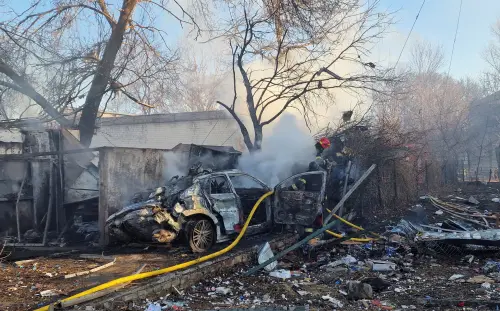In their latest missile strike, Russian forces damaged Ukrainian energy and gas infrastructure overnight following a halt in U.S. intelligence sharing with Ukraine. Ukrainian President Volodymyr Zelenskiy, aiming to garner Western support, proposed a truce that excludes ground troops. He emphasized the need to halt Russian attacks, stating, "The first steps to establishing real peace should be forcing Russia to stop such attacks." Ukraine's air force reported countering 67 missiles and 194 drones, downing 34 missiles and 100 drones during the assault.
Various regions, from Kharkiv in the northeast to Ternopil in the west, sustained infrastructure damage. Ukrainian Energy Minister German Galuschenko condemned Russia's "energy terror," highlighting the repeated missile and drone assaults on energy and gas infrastructure across Ukraine. The recent attack marked the first major assault since the pause in U.S. support.
Deteriorating relations between Ukraine and the U.S. have strained, exacerbated by recent disagreements between Zelenskiy and Trump. Zelenskiy expressed readiness to negotiate quickly under Trump's guidance. In efforts to mend relations, Zelenskiy scheduled meetings with Saudi officials and American envoy Steve Witkoff to discuss potential peace agreements. Despite Ukraine's push for security assurances, differing visions between the nations may hinder progress in ending the conflict.
On the battlefield, Russian forces are advancing in eastern Donetsk and pressuring Ukrainian troops in the Kursk region. Russia's targeting of Ukrainian power infrastructure has led to significant electricity outages. Additionally, gas production facilities were damaged in the recent attack, notably affecting DTEK's operations in Poltava. The interruption in U.S. military support impacts Ukraine's air defenses, potentially hindering its response to attacks and missile tracking capabilities.
